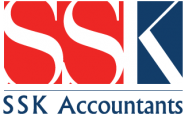With the Tax season approaching fast, everyone is worried about tax but lets face the reality, tax is inevitable if you are earning income. But there is no reason that one should over pay and its never too late to think about some strategies to save tax.
At the outset, it is very important to understand the difference between Tax Minimization and Tax Avoidance. Many people get muddled with these two terms.
Tax minimization is when you legitimately arrange your tax affairs to reduce the amount of tax you pay. You are entitled to minimize your tax liabilities through Investment activities and to receive the benefits provided for under the law.
Tax avoidance or a tax scheme is an artificial or contrived arrangement to avoid or defer tax obligations. Schemes often involve a series of complex transactions. They typically move funds through several entities, such as trusts, in order to avoid or minimize tax otherwise payable. Schemes may also involve distorting the way funds are being used to enable a taxpayer to claim deductions they are not entitled to.
Taxpayer obligations:
Following are some of the Obligation of Tax Payers in Australia:
Under Australia’s self-assessment tax system, you are responsible for declaring all your assessable income such as Wages & Salary, Business Income, Investments including dividends, distributions, rents, interest etc.
claims you make in your tax return are usually accepted without adjustment and an assessment notice is issued. However, under the laws of self-assessment, the Tax Office is able to review your claims and increase or decrease the amount of tax payable for up to four years after you lodge your return. In some circumstances, anti-avoidance provisions of the law may extend the period of review up to six years.
You are responsible for the correctness of your tax return, and are encouraged to investigate claims of tax benefits before claiming a tax deduction.
Following are some tips for saving tax:
1. Ascertain your income for the financial year 2015-2016:
Gather information from all sources of income including Wages, Business income, Investments and Interest received from Bank. One of the ways to save tax in current year is to either defer your income or bring forward deductions, provided action is taken by 30 June 2011.
Following are the income tax rates (Excluding Medicare Levy) for the 2015 – 16 financial year:
Residents
These rates apply to individuals who are Australian residents for tax purposes.
Tax rates 2015–16
| Taxable income | Tax on this income |
|---|---|
| 0 – $18,200 | Nil |
| $18,201 – $37,000 | 19c for each $1 over $18,200 |
| $37,001 – $80,000 | $3,572 plus 32.5c for each $1 over $37,000 |
| $80,001 – $180,000 | $17,547 plus 37c for each $1 over $80,000 |
| $180,001 and over | $54,547 plus 45c for each $1 over $180,000 |
The above rates do not include the:
- Medicare levy of 2%
- Temporary Budget Repair Levy; this levy is payable at a rate of 2% for taxable incomes over $180,000.
Foreign residents
If you are a foreign resident for the full year, the following rates apply.
Tax rates 2015–16
| Taxable income | Tax on this income |
|---|---|
| 0 – $80,000 | 32.5c for each $1 |
| $80,001 – $180,000 | $26,000 plus 37c for each $1 over $80,000 |
| $180,001 and over | $63,000 plus 45c for each $1 over $180,000 |
Foreign residents are not required to pay the Medicare levy.
The above rates do not include the Temporary Budget Repair Levy; this levy is payable at a rate of 2% for taxable incomes over $180,000.
Source: ATO Website
2. Claim all work related deductions:
The mission of gathering all work related deductions may appear intimidating especially given the need to collate all the required tax invoices and receipts for any significant claims. This task can be made easy by understanding what work-related expenses are potentially deductible and can save you considerable cost. One of the easiest and most practical ways is to pay all your expenses through a single bank account or credit card so you can easily locate the relevant costs and any associated receipts.
In the event you don’t have the necessary receipts you can still claim up to $300 of work-related expenses provided the claims relate to outgoings you have incurred in your job or business.
Some of the common work-related expenses that are allowable include uniforms, Laundry, business mobile & telephone costs, subscriptions and union fees.
Self-education expenses are also deductible in certain circumstances where the study is directly related to either maintaining or improving your current occupational skills or it is likely to increase your income from your current employment. If the study is to obtain new qualifications in a different field the expenses will not be allowable.
3. Log book for vehicle:
In the event you use your car for work, keep a log book AND keep all your expenses for the year. It will allow you the option of selecting the best method of claiming the cost of running your vehicle – rather than just the easiest method. Work-related travel expenses include travel between two places of work or employment, or travel to shifting places of employment. It may also be available where you have to carry bulky tools or equipment with you to work. It does not, however, include direct travel between a person’s home and a place of work.
Penalties and fines are not allowable.
4. Keep track of Interest
The general misconception people have is that interest earned on their savings is not income and hence they do not declare the interest earned in their tax returns. All the interest earned on your saving is your income and therefore part of your assessable income. Keep track of your interest and provide tax file numbers to your bank so that you don’t have tax deducted until you file your return.
5. Tax Effective Superannuation Contributions:
Superannuation provides great tax saving benefits. Salary sacrificing and contributing to your low income earning spouse’s fund can give great tax benefits. A self-employed taxpayer will be able to claim their contributions to a complying superannuation fund as fully tax deductible up to the age of 75. However, they will not be deductible if 10 per cent or more of a person’s assessable income or reportable fringe benefits is attributable to their employment.
Employers can also claim deductions for employee superannuation contributions provided the employee is under 75. Any excess contributions made by the self-employed or by an employer in respect of an employee will be taxed at a rate of 46.5 per cent rather than 15 per cent if the contributions made during the year exceed $25,000 or $500,000 for those aged 50 or more as of 30 June 2011.
6. Interest and Expenses on investment property:
Prepay the interest on your investment property so that you can claim the deduction now. Regardless of whether the property is positively or negatively geared, rental property owners can generally claim deductions for advertising, bank charges, body corporate fees, cleaning, council rates, electricity and gas, gardening, insurance, interest on loans, land tax, lease preparation expenses, legal costs, pest control, postage and stationery, property agent fees and commissions, repairs, secretarial and bookkeeping fees, security patrol fees, telephone calls and water rates. You may also be able to write off the cost of certain buildings, depreciating assets and borrowing costs over time.
7. Non-work related deductions :
The fees you pay a registered tax agent to prepare your return or to manage your tax affairs are allowable in the year the fee is paid. Bank charges and any interest payments on funds to finance the purchase of shares and other income producing investments are generally allowable.
8. Utilise capital losses
In the current economic downturn many investors may have incurred capital losses from the disposal of investments. But there is a way to turn bad news into better news. Any such loss can be offset against any current capital gains you may have made, or be carried forward indefinitely to be applied against any future capital gains.
Further, a capital loss on an investment can be applied against any other capital gain other than for special rules relating to gains on collectables such as artworks and antiques and certain personal use assets. It is nice to know that even in these tough times, a loss is still worth something.
9. Income Protection Insurance:
If you have income protection insurance, the ATO allows you to claim this as a work-related expense.
10. Enhance your tax offsets
Many people get jumbled between Work related Expenses and Tax Offsets. Expenses or Work Related Deductions reduce your Assessable income whereas Tax offsets directly reduce your payable tax and can add up to a sizeable amount. So it pays to know all the offsets you are entitled too. Eligibility for offsets will generally depend on your income level, family circumstances and satisfying specific conditions for each rebate.
Most Common examples of tax offsets include the dependent spouse rebate, low-income rebate, mature aged worker rebate, the senior Australian tax offset, the medical expenses offset, the private health insurance offset and the offset for superannuation contributions made on behalf of a low income spouse.
Additionally, there is a 25 per cent entrepreneur’s tax offset if a sole-trader has elected to enter the small business entity system.
An Education Tax Offset is available for families who receive Family Tax Benefit Part A for 50 per cent of the cost of items such as educational software, home computers and associated costs, home internet connections, laptop computers, printers, school texts, stationery and trade tools used in school. The maximum amount of the rebate is $375 for each child in primary school and $750 for each child in secondary school.
Plan for future (2011-12):
Plan before it is too late and Look at ways to reduce your taxes in the financial year ahead. Consult a Qualified Accountant and Registered tax agent for your end of year tax planning.
Further Information:
In the event you have any queries or need further information on your Tax Affairs please contact us at 03 – 8759 0629 or at 0413708740.
Important Disclaimer:
This information has been taken from different sources (ATO and In The Black Magazine) and Neither the writer nor the firm accept any responsibility for anyone relying on this information. Therefore we strongly urge the readers to consult a qualified accountant and registered Tax agent before relying on this information.
Source : ATO Website (ato.gov.au), In the Black Magazine

